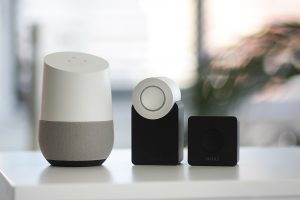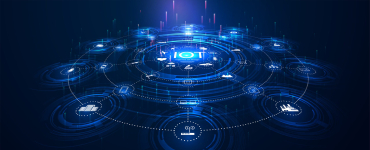- eco survey reveals: Over a quarter of Germans already using digital voice assistants
- High data protection standards as the key to the acceptance of AI technologies and services
- AI needs human intelligence for its own development
Digital voice assistants are popular: Over a quarter (27.3 percent) of Germans are already using digital assistants such as Google Assistant, Amazon Alexa, Siri, or Cortana. 5.7 percent of Germans are even using their smart loudspeakers several times a day – according to the result of a representative survey by eco – Association of the Internet Industry.
“Digital voice assistants are supporting us more and more in all scenarios and are getting better and better at doing so – whether at home, in the car, or at work,” stated Dr. Bettina Horster, Head of the IoT Competence Group with the eco Association and Board Member of VIVAI Software AG. Horster was speaking at the IoT Business Trends on 2 July, the annual get-together of the IoT industry in Dusseldorf. In her view, the enormous development potential for companies and society can only be realized in the long term if providers do their homework, including the implementation of high standards in data protection and security.
Data protection as the most important prerequisite for all voice assistant services
In point of fact, fear of misuse of their personal data is still the most important current factor (41.9 percent) preventing Germans from using digital voice assistants. Many people are also concerned about possible misuse of voice assistants by third parties (12.5 percent), or about potential surveillance and prosecution (11.1 percent). “If the providers succeed in addressing people’s concerns with demonstrably high security standards, then numerous new services for companies will emerge on the strength of digital voice assistants,” Horster predicted. “Digital voice assistants will not just improve collaboration within companies, but also with customers and partners.”
The providers and operators of artificial intelligence systems are thus called upon to communicate the mode of operation of their services and products in a manner which is understandable and transparent. Users and involved parties must be helped to understand how artificial intelligence works, why the systems make a recommendation or decision in a certain situation and form, and which data is processed and possibly generated. This is the only way to ensure that artificially intelligent services will be widely accepted by society as a whole. This demand has already been set out by the eco Association in its Guidelines for the Handling of Artificial Intelligence.
Voice assistants can do more
So far, people are still mainly using digital voice assistants to find information on the Internet (32.4 percent). Virtual assistants are also being used to listen to music, navigate in the car, or be reminded of appointments. But the devices today can already offer much more, such as applications in the care sector, where they are helping older people to live longer in their own homes – a goal of the Smart Service Power initiative. In the car, too, voice assistants offer more ease and comfort by allowing functions to be voice-controlled.
Andreas Weiss, Director of Digital Business Models with the eco Association, described a future application for AI in SMEs: The Service-Meister project aims to use intelligent algorithms to ensure that machines and plants can be more easily maintained and kept available. To this end, Service-Meister is developing an open platform that is intended to make the expert knowledge of maintenance and service technicians scalable.
AI needs human intelligence for its next developmental steps
Prof. De Kai Wu from the Hong Kong and Berkeley universities outlined what further development steps are likely to be seen in the future. “Today’s AI applications are no longer just rule-based, they are based on machine learning and neural networks,” said the leading global computer linguist. Since AI algorithms have learned primarily from us, they are dependent on human education. Because, effectively, “We are all the training data”, observed Prof. De Kai Wu. “Our behavior affects how an AI develops. A sustainable planet worth living on therefore also requires a responsible use of technologies and tools, as the AI era will enable us to do.”
Further information:
Central challenges and solutions of artificial intelligence will be discussed at the eco Congress FAST. FORWARD. FUTURE. Shape the Internet of the Future with Artificial Intelligence. Here, the eco Association will explain and talk over the central challenges and solutions of AI with the visionaries and driving forces from politics, industry, society, as well as operators of digital infrastructures and services. The Congress will take place on 21 November 2019 in Cologne. Further information on the program and registration for the eco Congress.




